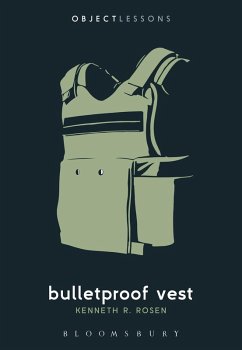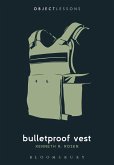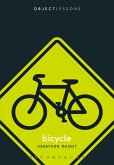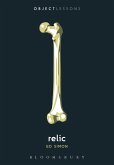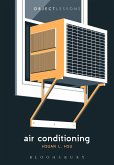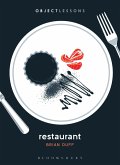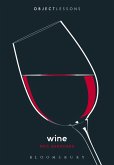A WIRED 2020 Book of the Year
Object Lessons is a series of short, beautifully designed books about the hidden lives of ordinary things.
"Nothing's bulletproof," the salesman said. "The thing's only bullet resistant." The New York Times journalist Kenneth R. Rosen had just purchased his first bulletproof vest and was headed off on assignment. He was travelling into Mosul, Iraq, when he realized that the idea of a bulletproof vest is more effective than the vest itself. From its very inception, poly-paraphenylene terephthalamide, or Kevlar, was meant for tires. Its humble roots and mundane applications are often lost, as it is now synonymous with body armor, war zones, and domestic terrorism.
What Rosen learned through intimate use of his vest was that it acts as a metaphor for all the precautions we take toward digital, physical, and social security. Bulletproof Vest is at once an introspective journey into the properties and precisions of a bulletproof vest on a molecular level and on the world stage. It's also an ode to living precariously, an open letter that defends the notion that life is worth the risk.
A portion of the author's proceeds will be donated to RISC, a nonprofit that provides emergency medical training to freelance conflict journalists. For more information, go to www.risctraining.org.
Object Lessons is published in partnership with an essay series in The Atlantic.
Object Lessons is a series of short, beautifully designed books about the hidden lives of ordinary things.
"Nothing's bulletproof," the salesman said. "The thing's only bullet resistant." The New York Times journalist Kenneth R. Rosen had just purchased his first bulletproof vest and was headed off on assignment. He was travelling into Mosul, Iraq, when he realized that the idea of a bulletproof vest is more effective than the vest itself. From its very inception, poly-paraphenylene terephthalamide, or Kevlar, was meant for tires. Its humble roots and mundane applications are often lost, as it is now synonymous with body armor, war zones, and domestic terrorism.
What Rosen learned through intimate use of his vest was that it acts as a metaphor for all the precautions we take toward digital, physical, and social security. Bulletproof Vest is at once an introspective journey into the properties and precisions of a bulletproof vest on a molecular level and on the world stage. It's also an ode to living precariously, an open letter that defends the notion that life is worth the risk.
A portion of the author's proceeds will be donated to RISC, a nonprofit that provides emergency medical training to freelance conflict journalists. For more information, go to www.risctraining.org.
Object Lessons is published in partnership with an essay series in The Atlantic.
In Bulletproof Vest, Rosen explores the significance of this war zone accessory with compelling nuance and knowledge of military history. Perhaps more impressive, though, is his willingness to explore the relationship between military protective gear and human vulnerability. LA Review of Books

